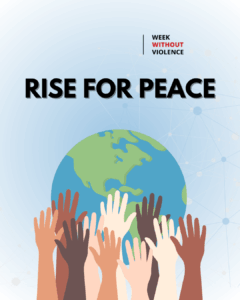In the face of alarming statistics on domestic violence, we are compelled to address a disheartening truth: not all violence is acknowledged or responded to equally. While the numbers are staggering, it’s crucial to understand that the response to violence, particularly gender-based violence, is far from uniform. This inequality in response is a call to action, an urgent need to confront the underlying issues that perpetuate this disparity.
- Societal Perception: Society often perceives violence through a distorted lens. While physical abuse is readily acknowledged and condemned, other forms of violence, such as emotional or financial abuse, remain hidden in plain sight. This skewed perception can deter survivors from seeking help and lead to a lack of support from society.
- Victim-Blaming: An unequal response often arises from victim-blaming. In some cases, survivors are unfairly blamed for their ordeal, which can foster skepticism, mistrust, and a reluctance to come forward. This not only deepens emotional wounds but also perpetuates the cycle of violence.
- Access to Resources: The availability and accessibility of resources for survivors vary widely. Some individuals have access to a strong support system, shelter, therapy, and legal assistance, while others, especially marginalized communities, struggle to find help. This unequal distribution of resources perpetuates the cycle of violence and its aftermath.
- Cultural Norms: Cultural norms and stereotypes can also influence the response to violence. In some cultures, silence is encouraged, making it difficult for survivors to speak out. Challenging these norms is a critical step in addressing this inequality.
- Legal Response: The legal system’s response to violence can also be inconsistent. Convictions and penalties for perpetrators can vary greatly, and justice may not always be served. This, in turn, discourages survivors from seeking legal recourse.
Recognizing that not all violence is acknowledged or responded to equally is the first step towards change. We must take action to address these disparities:
- Education and Awareness: We must raise awareness about all forms of violence, emphasizing that no abuse should be trivialized. Education can empower individuals to recognize, address, and prevent all types of violence.
- Support and Empathy: Creating a safe, non-judgmental space for survivors is crucial. Empathy and support should be extended to survivors, regardless of the form of violence they’ve endured.
- Legal Reforms: Advocacy for legal reforms to ensure consistent, fair, and effective responses to violence is essential. This includes stringent penalties for perpetrators and ensuring justice is served.
- Resource Equality: Efforts should be made to ensure that resources and support are accessible to all survivors, especially those in marginalized communities.
- Challenging Stereotypes: Challenging cultural norms and stereotypes that perpetuate silence and victim-blaming is vital. Breaking these barriers encourages survivors to come forward.
Acknowledging that not all violence is responded to equally is a sobering realization. But it’s also a rallying cry for change. By recognizing this inequality and actively working to address it, we can move closer to a society where all forms of violence are met with compassion, support, and justice. Together, we can create a more equitable response to violence, paving the way for a safer and more compassionate world.


